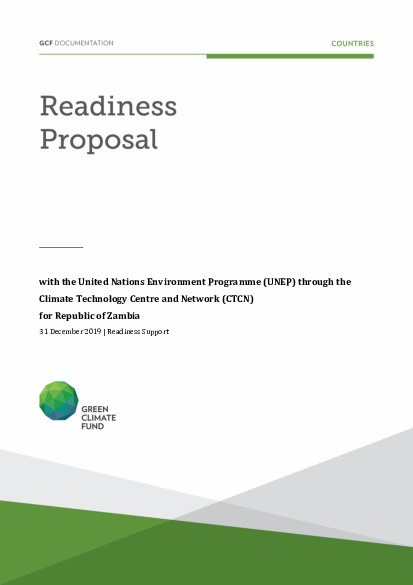National framework for leapfrogging to Energy Efficient Appliances and Equipment in Zambia (Refrigerators and Distribution Transformers) through regulatory and financing mechanism

National framework for leapfrogging to Energy Efficient Appliances and Equipment in Zambia (Refrigerators and Distribution Transformers) through regulatory and financing mechanism
This readiness proposal will result in Zambia having a regulatory framework and an agreed MEPS and labelling scheme for Refrigerators and Distribution transformers. This would be legislated through a notification by the Energy regulatory Board of Zambia and Zambia Compulsory Standards Agency. With only 31.4% of the Zambian population has access to electricity (2015)1 electrification is a priority for the Government. With financial constraints and subsidized electricity, reducing electricity losses is the first and most economical measure to be adopted. Low efficient appliances and electricity-using equipment result in huge losses, which bring a heavy burden on the government’s budget (electricity is subsidized) and hampers the country’s electrification potential. The lack of information and awareness, lack of dedicated policies for energy efficient products and appliances including absence of minimum energy performance standards prevents Zambia from inducing a sustainable market transformation in favor of higher efficiency products. With improvement of the economic situation, demand for domestic refrigerators is increasing rapidly, and may already account for over 25% of domestic electricity consumption. Without the development of energy-efficient policies, inefficient products will continue to enter the market and remain strained on the grid for their useful life (approximately 10 years for refrigerators and 40 years for distribution transformers). This readiness proposal through notification of MEPS and labelling scheme will create an enabling policy and regulatory environment for refrigerators and distribution transformers to support market transformation. The project will reduce strain on the electricity grid and ability to extend the electricity grid, increase disposable income for households (reduced electricity bill), and potentially reduce GHG emissions, since it is anticipated that the planned increase in grid connections and electrification would move Zambia towards the use of fossil fuels for electricity generation.